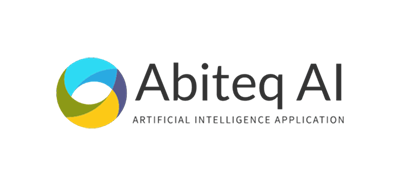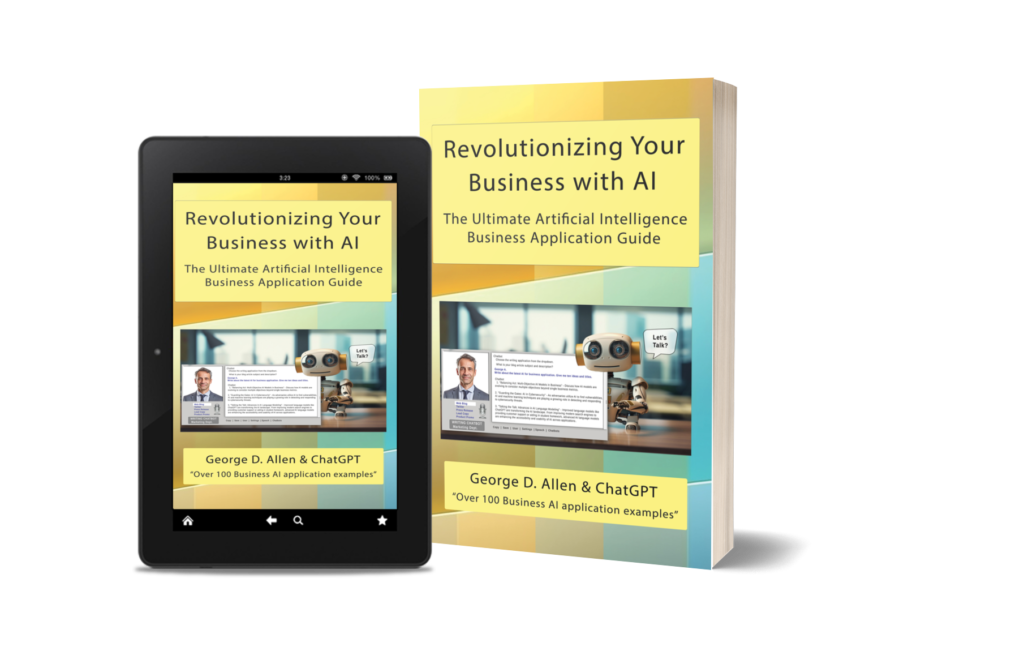We explore the potential benefits of AI applications for business large corporations. Of course, many applications work for all company sizes, so review all cases for the best overview. We discuss various use cases, offering guidance on selecting the most appropriate AI solutions for businesses, and providing examples of successful AI implementations. By understanding how AI can be leveraged to improve efficiency, reduce costs, and enhance customer experiences, businesses can capitalize on the transformative power of AI to drive innovation and growth.
AI Business Applications for Large Corporations
Large corporations can leverage AI to drive innovation, optimize operations, and enhance decision-making across various departments and functions. Examples of AI applications for large corporations include:
- Supply chain optimization: AI can help large corporations manage complex supply chains more efficiently by predicting demand, identifying bottlenecks, and optimizing transportation routes.
- Talent management: AI can support large corporations in managing their workforce, from recruitment and onboarding to performance management and employee retention.
- Predictive maintenance: AI-powered sensors and analytics can help large corporations anticipate equipment failures and schedule maintenance more effectively, reducing downtime and operational costs.
- Personalized marketing campaigns: AI can enable large corporations to create highly targeted and personalized marketing campaigns, increasing customer engagement and return on investment (ROI).
Supply Chain Optimization
AI can help large corporations manage complex supply chains more efficiently by predicting demand, identifying bottlenecks, and optimizing transportation routes. By analyzing data from various sources, such as sales, weather, and market trends, AI can provide insights that enable large corporations to make more informed decisions about inventory management, distribution, and logistics. Examples of AI-powered supply chain optimization tools include Llamasoft, ClearMetal, and Blue Yonder.
Talent Management
AI can support large corporations in managing their workforce, from recruitment and onboarding to performance management and employee retention. By automating time-consuming tasks and leveraging data-driven insights, AI can help large corporations make more informed decisions about talent acquisition and development, ultimately contributing to a more engaged and productive workforce. Examples of AI-powered talent management tools include Eightfold.ai, Pymetrics, and Textio.
Predictive Maintenance
AI-powered sensors and analytics can help large corporations anticipate equipment failures and schedule maintenance more effectively, reducing downtime and operational costs. By analyzing data from sensors, AI can identify patterns and anomalies that may indicate a potential failure, enabling companies to proactively address issues before they escalate. Examples of AI-powered predictive maintenance solutions include IBM Maximo, C3 AI, and Uptake.
Personalized Marketing Campaigns
AI can enable large corporations to create highly targeted and personalized marketing campaigns, increasing customer engagement and return on investment (ROI). By analyzing customer data and preferences, AI can help companies tailor their marketing messages and strategies, ensuring that customers receive relevant and engaging content. Some examples of AI-powered personalized marketing tools include Marketo, Adobe Target, and Optimizely.
Selecting the Most Suitable AI Applications
To select the most suitable AI applications for their businesses, organizations should consider the following factors:
- Business objectives: Identify the specific challenges or goals that the AI solution is intended to address.
- Integration and scalability: Assess how well the AI solution can be integrated into existing systems and processes and whether it can scale with the business as it grows.
- Cost and ROI: Evaluate the costs associated with implementing and maintaining the AI solution, as well as the potential ROI in terms of cost savings, revenue growth, or other benefits.
- Data quality and availability: Ensure the business has access to the necessary data to support the AI solution and that the data is of sufficient quality, and/or start building new data formats to improve the AI interface.
- Skills and expertise: Determine whether the business has the in-house expertise to implement and manage the AI solution, or if external support is needed.
Business Objectives
Identify the specific challenges or goals that the AI solution is intended to address. This will help businesses focus on the most relevant AI applications and ensure that the chosen solution aligns with their strategic priorities.
Integration and Scalability
Assess how well the AI solution can be integrated into existing systems and processes, and whether it can scale with the business as it grows. This will ensure that the AI solution remains relevant and effective as the business evolves.
Cost and ROI
Evaluate the costs associated with implementing and maintaining the AI solution, as well as the potential ROI in terms of cost savings, revenue growth, or other benefits. This will help businesses make informed decisions about whether the AI solution is a worthwhile investment.
Data Quality and Availability
Ensure the business has access to the necessary data to support the AI solution and that the data is of sufficient quality. This will enable the AI solution to generate accurate and meaningful insights, enhancing its overall effectiveness.
Skills and Expertise
Determine whether the business has the in-house expertise to implement and manage the AI solution, or if external support is needed. This will help businesses identify potential skills gaps and ensure that they have the necessary resources to successfully implement the AI solution.
Conclusion
AI applications have the potential to transform businesses of all sizes, from SMEs to large corporations. By leveraging AI to automate tasks, analyze data, and enhance decision-making, businesses can improve efficiency, reduce costs, and drive growth. As the use of AI continues to expand, it is critical for organizations to evaluate their specific needs and objectives, ensuring that they select the most appropriate AI solutions for their unique circumstances. By doing so, businesses can capitalize on the transformative power of AI to innovate, compete, and thrive in the rapidly evolving digital landscape.

